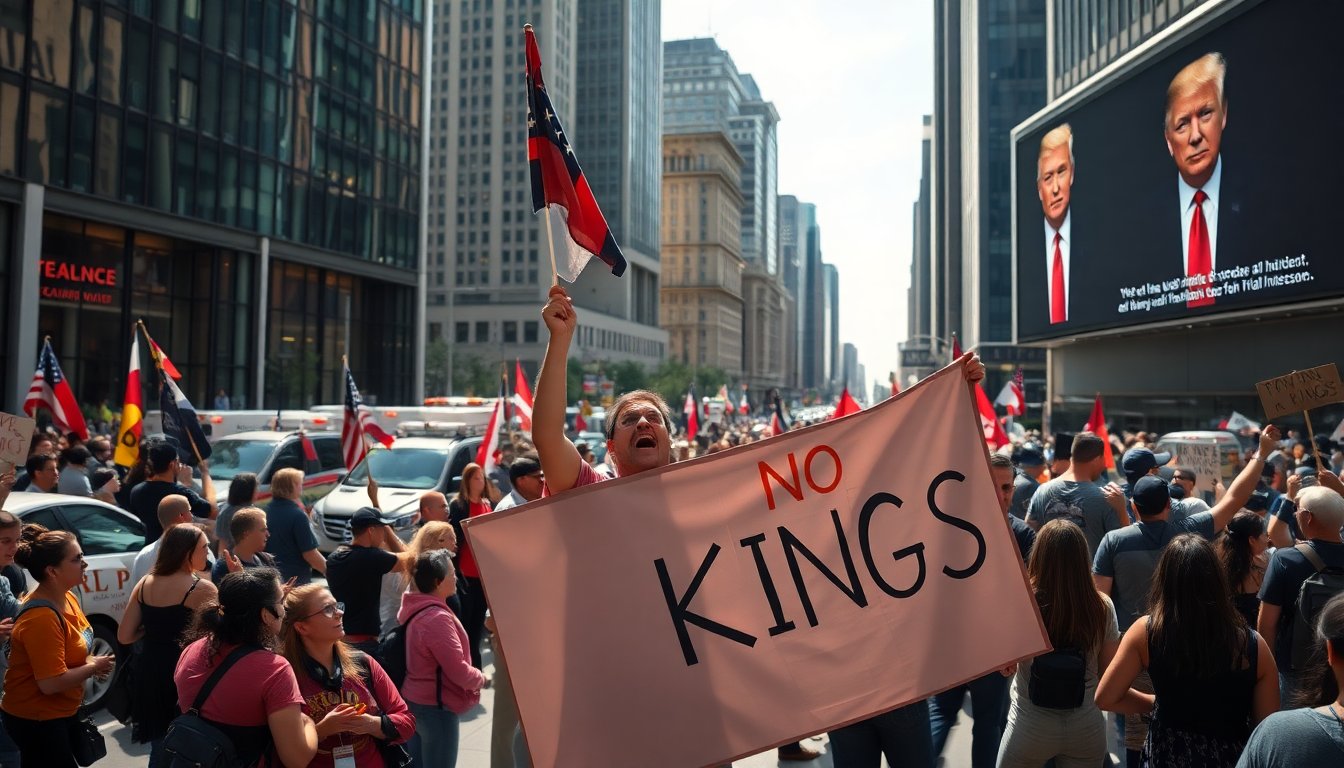Table of Contents
In a surprising move, Kenny Loggins, the renowned musician famous for his hit song Danger Zone, has publicly criticized U.S. President Donald Trump. This condemnation follows Trump’s use of the track in a recent AI-generated video. The video, shared on Trump’s Truth Social platform, features the president in a fighter jet, appearing to drop fecal matter on protesters participating in the ‘No Kings’ demonstrations that took place over the weekend.
Kenny Loggins demands removal of his song
Kenny Loggins, now 77 years old, voiced his outrage regarding the unauthorized use of his music in a statement to Variety. He said, “This is an unauthorized use of my performance of Danger Zone. Nobody sought my permission, which I would have promptly denied, and I request that my recording be taken down immediately.” His remarks reflect a clear disapproval of the political context in which his music was utilized.
Music as a unifying force
Kenny Loggins recently expressed his views on the role of music in society. He stated, “I can’t understand why someone would want their music associated with content designed to create division. We are facing a time when too many individuals are attempting to tear our nation apart, and it is crucial that we discover ways to unite instead.” His message of unity is particularly relevant amidst ongoing political tensions.
Loggins emphasized, “We are all Americans, and our patriotism should reflect our collective identity rather than create an ‘us versus them’ mentality. It is imperative that we stand together, celebrating our shared values through music and community.” This viewpoint highlights his conviction that art can foster connections among people rather than perpetuate divisions.
Public outcry against Trump’s actions
The AI video featuring Loggins’ song has faced considerable backlash, particularly after the recent ‘No Kings’ protests held nationwide. Demonstrators gathered in cities across the United States, expressing their concerns over what they describe as a shift toward authoritarianism under Trump’s leadership. Thousands participated, holding signs with slogans such as, “Nothing is more patriotic than protesting” and “Resist Fascism,” reflecting a strong opposition to the current administration.
The ‘No Kings’ movement and its significance
The ‘No Kings’ protests represent more than a spontaneous reaction; they are part of a larger initiative advocating for democracy in America. This initiative, known as the 50501 Movement, embodies the solidarity of citizens across all 50 states, promoting democratic values and opposing perceived authoritarianism. The protests began during a military parade in June, coinciding with a notable political figure’s birthday, which organizers criticized as an attempt to bolster personal image.
During the protests, participants have demanded the president’s removal, likening his actions to those of a monarch rather than a democratically elected official. The movement’s website outlines their grievances, stating: “They have defied our courts, deported Americans, and attacked our civil rights while enriching their billionaire allies.” This statement reflects the deep frustrations voiced by demonstrators across the country.
Reactions from the White House and supporters
In reaction to the protests, the official White House account on X shared a meme referencing Top Gun, accompanied by a caption that seemed to mock the demonstrators. Meanwhile, Trump, who spent the weekend at his Mar-a-Lago estate in Florida, dismissed the protests as ‘Hate America’ rallies, a sentiment echoed by several Republican leaders.
Public protests highlight discontent with political leadership
Despite criticism from former President Donald Trump and his supporters, recent protests have garnered backing from numerous public figures and celebrities. This support underscores a growing discontent with the current political climate. Notably, actor Robert De Niro has drawn parallels between the protests and the original struggle for American independence from British rule.
De Niro stressed the importance of citizens reclaiming their voices and rights. He remarked, “We’ve had two and a half centuries of democracy since then, and now we have a would-be king who wants to take it away: King Donald the First. It is essential that we rise up again, advocating for a future free of tyranny.” His statement reflects the resolve of participants in the ‘No Kings’ movement.
Kenny Loggins’ stance against the use of his music in politically charged contexts underscores a broader conversation about artists’ rights. This debate raises questions about the implications of their work in today’s political landscape. As the country navigates these complex issues, the urgency for unity and the affirmation of democratic values becomes increasingly significant.


